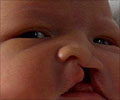While the trend of holding kids out of kindergarten until they're older is growing, a new research shows that older kindergartners fare better academically largely because they learn
New research shows that older kindergartners fare better academically largely because they learn more before starting school and not because age improves aptitude as popularly perceived.
Darren Lubotsky, a University of Illinois economics professor who co-author, also said that academic advantages are short-lived and come at the expense of delaying entry into the workforce and other costs.According to the study, older students post higher test scores than younger peers during the first few months of kindergarten, but their edge soon fades and nearly vanishes by eighth grade.
"If it were true that older kids are able to learn at a faster rate, then the differences in test scores should get bigger as kids progress and the material gets more difficult. But we really see the opposite," Lubotsky said.
The new study is a challenge to decades of research linking age to academic achievement that has led states to push back kindergarten entrance age deadlines and convinced more parents to start children later than the once-traditional age of 5.
Though older students have an early edge based on an extra year of skill development, the study maintains that older and younger students learn at the same pace once they enter school, based on a review of federal education data.
"Kids learn at lot before kindergarten, especially if they're in preschool. One way to think about it is that the oldest kid in kindergarten has about 20 percent more life experience. But once they start, they basically learn at the same rate," Lubotsky said
"Older kids may do better at first, but there's a tradeoff. They're also a year in school behind other kids their own age. At the end of the line, somehow that year will catch up to them. They start work a year later, and parents have an extra year of child-care costs if they delay entry. So it's not free," he said.
On one hand, younger students tend to score higher on tests when they have older classmates, who may help tutor their peers or simply set higher standards that others seek to achieve.
However, the study also showed that having older classmates makes it more likely that younger peers will be held back or diagnosed with learning disorders such as attention deficit disorder.
"What we think is going on is that teachers are comparing younger kids to older classmates and the younger kids tend to stand out. They stand out either as not doing as well or they tend to stand out as being more hyperactive," Lubotsky said.
"Older kids do better at first and younger kids do worse, but they catch up. The thing is schools are making profound decisions based on these differences - differences that tend to fade away," he said.
Lubotsky said that follow-up research is planned to determine whether the academic advantages of age continue to decline through high school.
The study appears in the Journal of Human Resources.
Source-ANI
RAS/L
 MEDINDIA
MEDINDIA




 Email
Email




